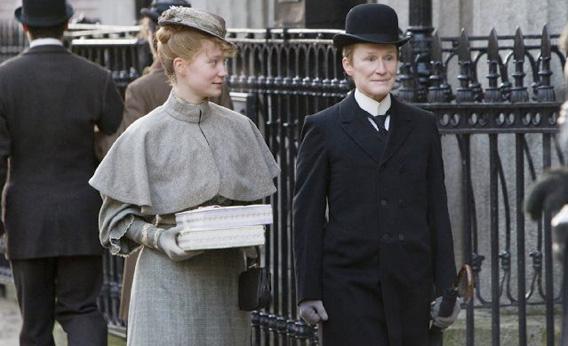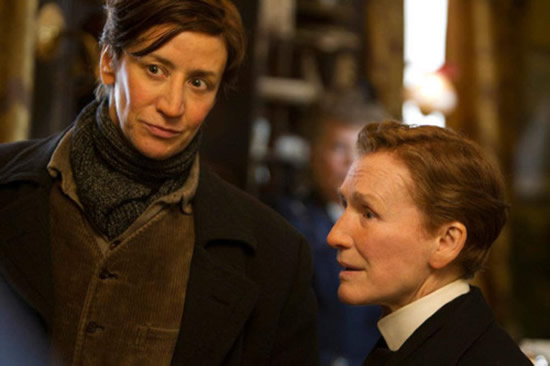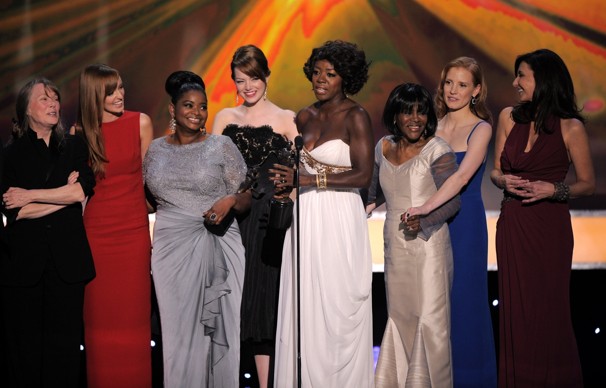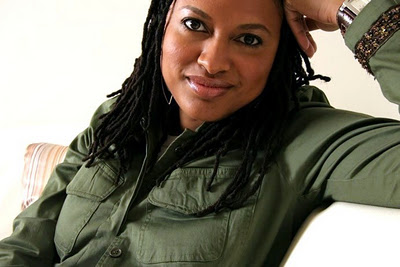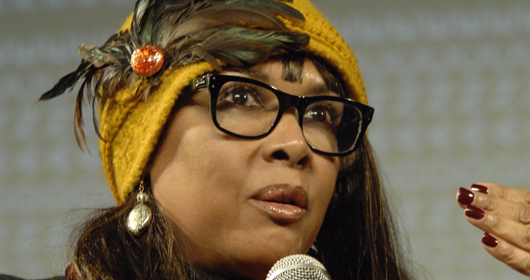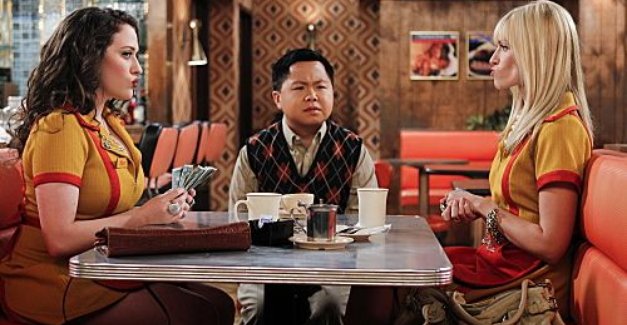How many movies have you watched in which rape is a notable, if not integral, part of the plot? Not sure? Well, I started thinking about it and poked around. The short list I compiled is at the end of this article.
Amazing, right? I personally have spent probably hundreds of dollars and entire weeks of my life paying for and watching these movies. Given the list below, it is clear that we do not shy away from movies in which jarring and often graphic rape scenes are featured. The most recent and extraordinarily explicit example, of course, is
The Girl with the Dragon Tattoo. War movies, in particular, often feature or allude to rape. Indeed,
militarism and sexual violence seem to go hand in hand — but we don’t usually think of the rape being intra-military. In addition, these films are almost always fictional, edifying tales of retribution that leave audiences entertained and emotionally satisfied. But what about real rape — especially rape in the military?
You don’t see any blockbusters on the list about that. So, in return for the hours of entertainment pleasure that you may have derived from some of these films, take just two minutes and watch this:
The Invisible War, which premiered at The Sundance Film Festival on January 20th, is a groundbreaking investigative documentary about one of our country’s most shameful and best kept secrets: the epidemic of rape within our military. Focusing on the powerfully emotional stories of several young women, the film reveals the systemic failure of the military to confront these crimes and follows their struggles to fight for justice.
In 2009, 16,150 service members were assaulted (addition details for service academies can be found here at
Stop Military Rape.) Although both men and women are subject to assault, women in the military are now more likely to be raped by fellow soldiers than they are to be killed in combat. In a 2005
study of 540 female veterans, 30 percent reported assaulted by a male colleague and/or supervisor. Of these, 14 percent reported having been gang-raped and 20 percent reported having been raped more than once.
Estimates indicate that anywhere from
8 percent to as high as
37 percent of the victims of sexual assault and trauma cases reported last year were men. The Pentagon
believes that fully 80-90 percent of assaults (of men and women) are not reported. Only 1 in 15 men
report assault, versus 1 in 5 women. It is harder for service men (and civilians), who face the real risk and consequences of being stigmatized as weak and “not masculine” to report assault. In this way, the military is a sluggish, tradition-bound, concentrated distillation of prevailing cultural norms. The portrayal of rape in the media and our culture at large (everything from victim-blaming to exaggerated claims of false accusations) contributes to the difficulty of getting accurate information about men being victimized. Sexism, misogyny and hetero-normative standards result in rape being largely understood as forcible vaginal penetration of a woman by a man.
Trigger warning for this link: “Rape [for a man] is a very emasculating thing,” says
Rick Tringale, who was the target of a military gang rape and came forward with his story.
Military survivors of assault report several additional factors in explaining their reluctance to come forward.
Sexual assault is is deeply traumatizing and stigmatizing for any victim, but for military survivors of assault the effects can be significantly worse. In the first place, they cannot quit their jobs but instead have to continue working with their rapists, sleeping with their rapists, eating with their rapists, being “led” by their rapists and, in many cases, protect their rapists from harm and expect them to do the same. Given the power dynamics, sometimes the closest analogy is parental rape of a child.
Military Sexual Trauma is the Department of Veterans Affairs’ term for the effect of intra-service sexual assault or repeated, threatening sexual harassment on a veteran. Survivors
suffer higher rates of PTSD, anxiety, depression, increased risk of homelessness and alcohol and substance abuse. Female military personnel
report getting pregnant (some are raped while pregnant), having to find difficult to access abortifacients and often starting birth control to prevent the possibility of pregnancy in the face of the high likelihood that they will raped again. This is an environment where female service members
sleep with knives to protect themselves from their fellow soldiers.
Yet another intensifier is the military’s handling of rape claims. Here is a particularly troubling
description of a rape and how it was handled:
Beth, a major in the U. S. Army Reserve, was sexually assaulted by a noncommissioned officer during a scud missile attack during Operation Iraqi Freedom. She followed reporting procedures, including undergoing the collection of evidence during another scud missile attack. Emergency contraception (EC) was “simply handed to me as a lot of pills to take. I went on birth control pills in the event that this happened to me again.”
What happens when people report this crime?
The military chain of command has a vested interest in not escalating complaints. Unit commanders’ depend on obedience, harmony and cohesion — all of which are threatened by soldiers’ accusing other soldiers of assault and the fallout of those accusations. There is no incentive to resolve complaints legally and systematically in ways that will enter the official record. It means paperwork, investigations, dishonor, admission of responsibility, a loss of reputation and possibly rank.
In November, 2011 California Congresswoman Jackie Speier introduced the
Sexual Assault Training Oversight and Prevention Act–the STOP Act, H.R. 3435, which would take the reporting, oversight and investigation of these cases away from the military’s normal chain of command and into the jurisdiction of the the newly created, autonomous (civilian and military expert) Sexual Assault Oversight and Response Office.
In February of 2011 a landmark lawsuit was filed on behalf of 17 active duty service members and veterans, 2 men and 15 women. It accused the Department of Defense of cultivating a culture that fails to prevent and prosecute rape and sexual assault, violating plaintiffs’ constitutional rights. The case named Robert M. Gates and Donald Rumsfeld as heads of institutions that trivialized, denied, openly mocked the claims of rape victims and failed to take preventive measures to stop further assaults. This landmark case was
dismissed last December.
Lawyer Susan Burke filed an appeal for the case in early January (2012). The plaintiffs in this case are 28 current or former members of the military who allege that they were raped by coworkers and, similarly to the above cited case, that the defense secretary’s failure to act on the issue of sexual assault in the military amounts to a violation of their constitutional rights.
Some people feel that talking about these rapes, prosecuting them and seeking legal recourse weakens our military. It is the exact opposite. The persistent drumbeat of denial and blithe dismissal is dangerous and harmful. Not revealing, admitting and fixing the problem of rape in the military, and our culture at large, is what undermines cohesion and hurts soldiers.
“We will continue the legal battles until the military begins to punish and dishonorably discharge the sexual predators, rather than retaliate against those who report the crime,” explains Burke.
As far as I’m concerned, one rape is too much. I know, pie in the sky for some people — but a matter of life and death for others. From my perspective, it’s a shame we can’t sue our entire culture since, in actuality, the military’s rape statistics
aren’t that radically different from the nation’s.You can follow the release of the movie at @Invisible_War or check out the
Take Action list on
The Invisible War website.
Movies That Include Rape and Sexual Assault
This is a short list of movies in which rape occurs. I couldn’t even begin to compile a list in which rape is implied or threatened. Multiple iterations of IMBD searches consistently resulted in anywhere between 2,000-4,500 titles, depending on whether or not you included TV. Interestingly enough, however, some of the movies that involve the assault of boys and men did not appear on the first pass list of movies including rape.
9 ½ weeks
The Accused
American Psycho
The Astronaut’s Wife
Bastard Out of Carolina
Blue Velvet
Cape Fear
Cider House Rules
Clan of the Cave Bear
Clockwork Orange
The Color Purple
Dead Man Walking
Death and the Maiden
Deathwish I, II and II
Deliverance
Devil’s Advocate
Eve’s Bayou
Eye’s Wide Shut
Fear and Loathing in Las Vegas
Forrest Gump
The General’s Daughter
Gia
G. I. Jane
Gladiator
God and Monsters
The Good Girl
The Green Mile
Last Tango in Paris
Lawrence of Arabia
Lolita
Moulin Rouge
Once We Were Warriors
Platoon
Precious
Pulp Fiction
Rob Roy
Robin Hood
Saturday Night Fever
Schindler’s List
Shame
The Shipping News
Thelma and Louise
Traffic
